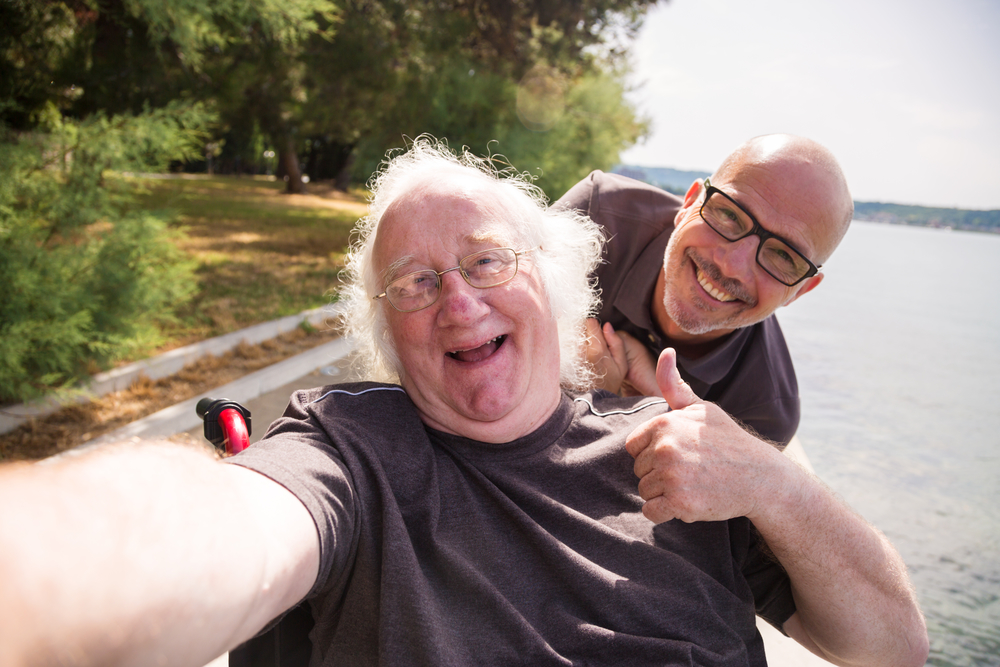
25 Jun Improving Social Skills In Adults With Intellectual Disabilities Through Kindness And Care
Many adults with Intellectual Disabilities struggle with learning new social skills. While there are many schools of thought on teaching them social skills, it’s evident that modeling empathy and kindness as a caregiver or friend can help special needs adults build new skills best.
Practice Makes Perfect
Pinterest has a variety of tools to help adults with intellectual disabilities improve their social skills. Search for keywords like teaching social skills, and adult learning disability, and you’ll find a wealth of valuable resources. For example, these Social Skills Tasks Cards, while intended for middle and high schoolers, are a great way to play out common social scenarios. One such scenario states, “a friend tells you they love their new shoes, even though you hate them. How do you respond?” Practicing this type of scenario can help an adult with an intellectual disability to learn how to respond with proper etiquette in future social situations they may encounter.
Other games, such as “Don’t Take the Bait,” give adult learners a chance to find what their social triggers are and learn how to properly respond to them. One example is as follows: “Kathy is my partner and she is really bossy. It’s making me frustrated.” Adults with intellectual disabilities could stop and think about how they would feel in this scenario, talk it out, and then troubleshoot proper ways to respond.
A Day In The Life
Another way to help adults with intellectual disabilities to improve social skills is to help them with a daily routine, such as a grocery shopping. Grocery shopping activities can guide them with figuring out budgeting and searching for prices. A grocery store scavenger hunt can be a fun way to help introduce the different aisles and build navigational skills in a store. If the adult learner shows apprehension, it’s important to slow down and help them acclimate to the new changes. Keep the learning process upbeat and be sure to praise positive choices.
You can also teach proper etiquette when eating in restaurants. Start somewhere casual and not too loud so that they can practice without becoming overwhelmed. Show examples of how you interact with the waitstaff, and if ready, give them the opportunity to practice in interaction as well. The key to building any skill is repetition. The more you go out and practice, the easier the social scenario will become.
Finding Ways To Connect
Helping an adult with an intellectual disability to make connections with others is vital to their social growth. Encourage and support them by joining a bowling league, taking group music lessons, or simply volunteering together at an animal rescue center. If it doesn’t work out, move on, and try something else. Keeping social interactions positive is the best way to help adults in this situation to let go of their fears and find people they can trust.
Before an adult with an intellectual disability can think about a career and building a fairly independent life, they must first master basic social skills. While there are a variety of ways to help build social skills, it’s important to follow their lead — whether it is your loved one or your patient. Stay positive, set a good example, and move gently, at their pace, using kindness and care.
Pathways of Pennsylvania has been serving communities in Pennsylvania since 1981. Every individual has a right to lead a meaningful and positive life, and we are changing lives, one day at a time. Pathways of Pennsylvania is comprised of four companies: Children’s Behavioral Health, Inc., Pathways Community Services, LLC, Raystown Developmental Services, Inc., and The ReDCo Group, Inc.
